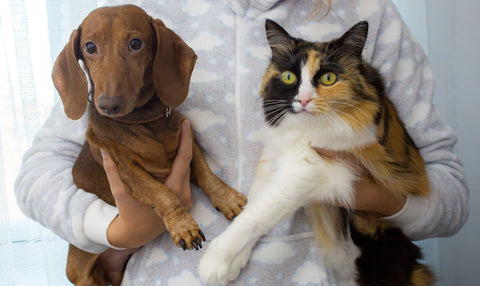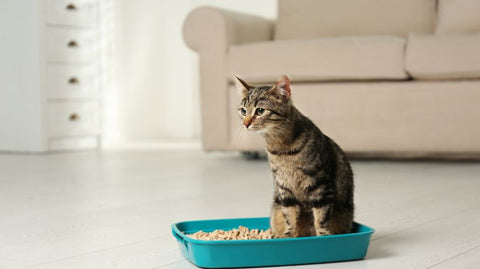

Safeguarding Your Feline Friend: Essential Tips for Cat-astrophe Prevention
As devoted cat parents, nothing is more important than ensuring the safety and well-being of our beloved feline companions. From curious kittens to seasoned seniors, cats have a knack for finding themselves in sticky situations. In this guide, we'll explore common household hazards and provide practical tips to prevent cat-astrophes and keep your kitty out of harm's way.
1. Toxic Treats: Identifying and Securing Hazardous Substances
Recognize Potential Hazards:
- Household Plants: Some common plants, such as lilies and philodendrons, can be toxic to cats if ingested.
- Human Foods: Onions, garlic, chocolate, and caffeine are just a few examples of foods that are harmful to cats.
- Chemicals and Cleaning Products: Store these items securely and avoid using products containing toxic ingredients in areas accessible to your cat.
Prevention Tips:
- Research Houseplants: Ensure any indoor plants are safe for cats or keep them out of reach.
- Secure Trash Bins: Use bins with tight-fitting lids to prevent your cat from accessing harmful substances.
- Store Food Safely: Keep human foods stored in sealed containers or cabinets inaccessible to your cat.
2. Dangling Dangers: Mitigating Risks of String and Small Objects
Common Hazards:
- String, Yarn, and Ribbon: Cats are drawn to these items but can ingest them, leading to serious digestive issues or even choking.
- Small Objects: Items like rubber bands, hair ties, and small toys pose a swallowing hazard if left within reach.
Prevention Tips:
- Secure Loose Items: Keep string-like objects, small toys, and other potential hazards stored away when not in use.
- Supervise Play: When engaging in interactive play, ensure toys are sturdy and do not have small, detachable parts.
3. Cozy but Risky: Assessing Cat's Hideaway Spots
Hidden Hazards:
- Recliners and Sofas: Cats may crawl into reclining furniture or under sofas, risking injury if the furniture is moved.
- Open Windows and Balconies: Unscreened windows or balconies pose a falling hazard, especially for curious cats.
Prevention Tips:
- Check Before Sitting: Always check recliners and sofas before reclining or moving them.
- Secure Windows: Install screens or window guards to prevent falls, and supervise outdoor balcony access if applicable.
4. Electrical Dangers: Protecting Your Cat from Shocks and Burns
Potential Risks:
- Exposed Wires and Cords: Cats may chew on cords, risking electrical shock or burns.
- Electric Heaters and Appliances: Cats may come into contact with hot surfaces or open flames.
Prevention Tips:
- Hide Cords and Wires: Use cord organizers or conceal cords behind furniture to prevent chewing.
- Supervise Heat Sources: Keep cats away from heaters and stoves, and use protective barriers when necessary.
5. Medication Mishaps: Preventing Accidental Ingestion
Hazards to Watch For:
- Unsecured Medications: Pills or capsules left within reach can be accidentally ingested by curious cats.
- Topical Treatments: Overapplication of flea or tick treatments can lead to toxicity if not used according to instructions.
Prevention Tips:
- Store Medications Safely: Keep all medications, including over-the-counter and prescription drugs, in secure cabinets or containers.
- Follow Dosage Instructions: Administer medications as directed by your veterinarian, and never give your cat medication intended for humans without professional guidance.
Creating a Safe Haven for Your Feline Companion
By being proactive and implementing these cat-astrophe prevention measures, you can create a safer environment for your beloved cat to thrive in. Remember, vigilance and awareness are key to keeping your feline friend out of harm's way. With your dedication and care, you can provide a loving and secure home where your cat can enjoy a lifetime of happiness and health.





